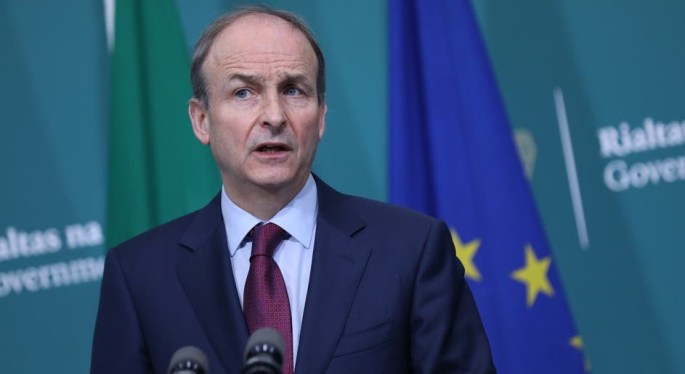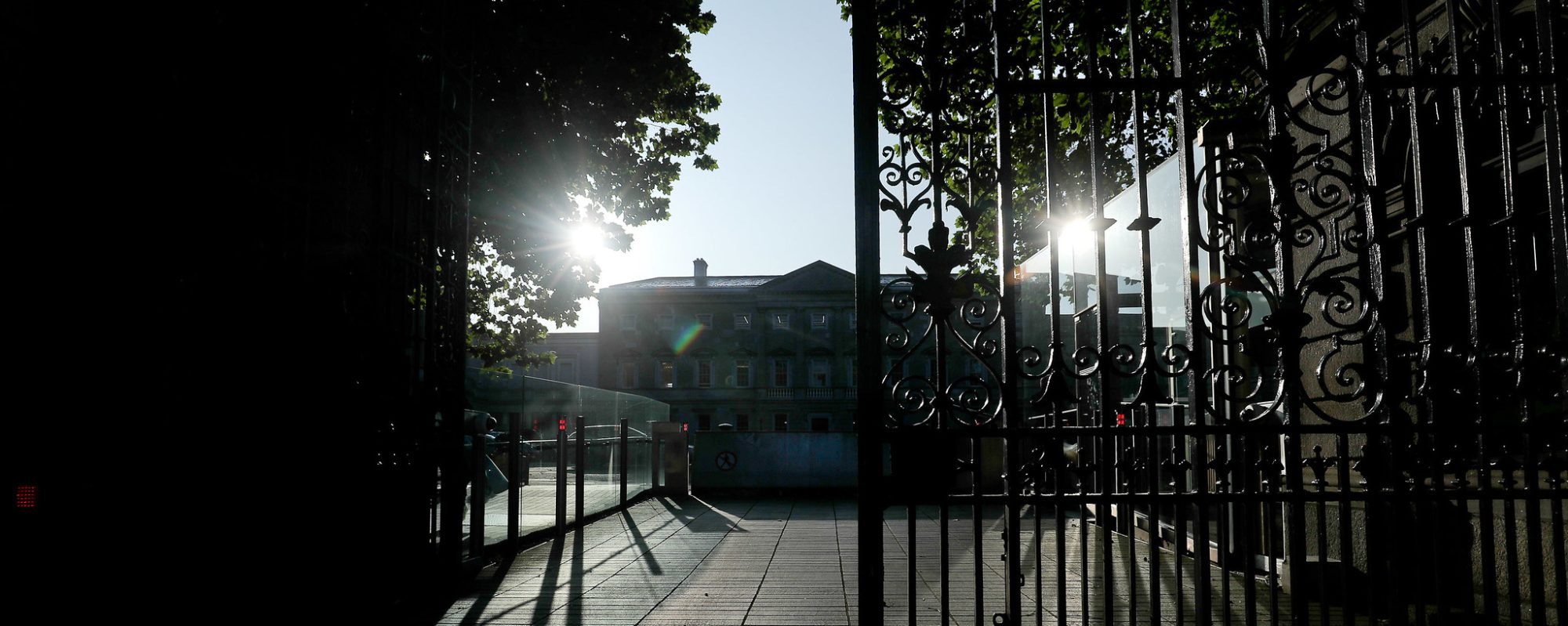This column first appeared on Broadsheet.ie on July 12th, a few days after the Dublin Bay South by-Election result. That result shows that Fianna Fáil is facing a crisis of relevance and viability, one that its leader of over 10 years is unwilling to address or acknowledge. This column was offered as an independent review of what I think went wrong in the by-election.

A few weeks after the February 2020 election I said that Fianna Fáil’s Micheál Martin needed to stop and “take a hard look at why his party lost support and seats”. I said it again, several times, over the weeks and months that followed. I even offered the independent review the Australian Labour Party had commissioned into its electoral failure as a template.
I thought it was essential that the party examine why it had done so badly before doing anything precipitative, such as going into government with the party it had promised to put out of office.
The leadership thought otherwise. It felt Fianna Fáil’s best course of action was to get into office and that its political revival would come from the government program for recovery. It seemed to miss the inconvenient truth that this meant giving Fine Gael a veto on Fianna Fáil’s fortunes.
This was one of the main reasons I ended my 40 plus year membership of Fianna Fáil. Why would I knock myself out trying to rebuild a party, when the top Fine Gael brass would have a bigger say in it than grassroot members?
Martin did agree a general election review as part of the package of measures to accompany the membership backing the Programme for Government. Twelve months later, that review has yet to be published. But then, the white paper on reunification that Martin told the Irish Times about in March 2017 is now only four years overdue.
Last November when the Red C/Business Post poll had Fianna Fáil’s support down to 12% I wondered: What is the purpose of now commissioning a report into why you lost 8% support between Sept 2019 and Feb 2020, when the latest polls show the decline today could be as high as 18%?
Last Thursday’s Dublin Bay South result shows the decline from the potential 28% identified in the Sept 2019 Red C Poll is even greater. In a measured but well considered letter to party colleagues circulated on Saturday, Barry Cowen TD said that the party needs all its TDs and Senators gathered in the same room to “reflect, discuss and take on board the message” sent by voters.
He is right.
Fianna Fáil now has a crisis level problem with both relevance and viability. A problem which its leader of over 10 years seems unwilling to address and which some of his Ministers seem blissfully unaware.
So, let me offer this concise independent review of what I think went wrong in the by-election. I offer this as an ex-party member who spent four decades in this and neighbouring constituencies. (NB when I joined, Fianna Fáil held two seats out of three in the old Dublin Rathmines West constituency, so the notion that people in Dublin 2, 4 or 6 are inherently unwilling to vote Fianna Fáil is nonsense.
As for the wider issues… I can send several dozen columns published here over the past two years.
I will look at the Dublin Bay South by-election campaign under a number of headings.
Messaging
It is not that Fianna Fáil’s by-election messaging was wrong. Quite simply, it had none.
All it saying to voters was – vote for us because you voted for us in the past, and you might do so again in the future. All that was missing was, vote for us as your Ma and Da used to.
Worse still, it was trying to run twin-track messaging. While its canvassers and volunteers were out extoling the party’s record in government, party strategists were telling all within earshot that they hadn’t a prayer, and this was all the local T.D.’s fault.
Not that the messaging was much better from other parties. Fine Gael’s message was vote for us to keep the Provos out. Indeed, they were pounding out that message online and on doors right up to the last hour campaign. Not that it mattered.
Ten days earlier an Irish Times poll blew the FG strategy out of the water. It showed that Ivana Bacik was the challenger, not Lynn Boylan (as I explained last week). Sinn Féin’s vote dropped across large parts of the constituency outside of the canal. I did not see that coming.
Meanwhile, with just two days to go before polling, Fianna Fáil, which had fought the last election saying that no single buyer should be allowed to bulk purchase entire developments, allowed itself to be portrayed as helping vulture and cuckoo funds to profiteer.
That is virtually a textbook example of bad messaging, and it cannot blame the sitting TD, the candidate or the local party organisation for that.
Campaign Strategy
While there was a local strategy on campaign organisation, there was no national campaign strategy. Bad enough that there was no Fianna Fáil national response at the outset to Fine Gael’s this is between us and Sinn Féin, but there was no pivot when the Irish Times poll showed that voters were going to Labour’s Ivana Bacik as the best way to reject the Sinn Féin/Fine Gael best of enemies’ approach.
That poll put Fianna Fáil at 10%, but the party failed to act. It could see that the momentum was with Ivana and there was a distinct risk that moderate voters would increasingly see Bacik as the safest way of frustrating both Sinn Féin and Fine Gael.
Its failure to tackle the false SF vs FG narrative at a national level hurt the by-election campaign. Fianna Fáil must find a counter strategy, and fast, as the best of enemies look like they plan to stick with this stratagem for a while.
Social media
I could write paragraphs on the problems with the party’s social media strategy, but rather than doing that, look at this compare and contrast video featuring the official Fianna Fáil and Fine Gael Twitter feeds on the eve of polling. Fine Gael tweeted as much material, almost all by-election related, in 4 hours as Fianna Fáil managed over two days, though only a fraction of Fianna Fáil’s tweets were about the by-election.
The party has capable and proficient staff on the payroll, but the party’s problem with crafting clear messaging lives them nothing to work with. You cannot have a social media strategy unless you first have a message. Fianna Fáil still has none.
Candidate
Fianna Fáil’s candidate in the by-election has come down for a lot of personal criticism, much of which I think was unfair.
While Cllr Conroy went into the arena with her eyes open, it is still disheartening to hear suggestion that elected and appointed party officials were briefing against the candidate who did offer to run when others would not.
Electoral politics has become such a no holds barred game that you have to wonder why anyone with any experience in other walks of life would offer to get into it. I am not trying gloss over Deirdre Conroy’s less than confident media performances, but have no doubt that, as a private citizen, Deirdre Conroy has done this country some service.
 Agree or disagree with her politics today, we should not forget that Deirdre took a public stance on a difficult issue when it mattered. In February 2002 she wrote a deeply personal open letter to the Irish Times recounting the severe complications she was then experiencing with her pregnancy. She went public, though understandably under a pseudonym, in the hope of changing views and changing the law, calling for terminations in the case of fatal foetal abnormalities to be legalised.
Agree or disagree with her politics today, we should not forget that Deirdre took a public stance on a difficult issue when it mattered. In February 2002 she wrote a deeply personal open letter to the Irish Times recounting the severe complications she was then experiencing with her pregnancy. She went public, though understandably under a pseudonym, in the hope of changing views and changing the law, calling for terminations in the case of fatal foetal abnormalities to be legalised.
Her intervention played a major part in swinging public opinion against the 2002 referendum. She unsuccessfully took a case to the European Court of Human Rights in 2005/06 and in 2013, following the tragic death of Savita Halappanavar she waived her anonymity and again told her personal story.
The vote she received does not reflect the service she has done this country or the contribution she continues to make as a City Councillor. She has already contributed to substantively changing this country in ways that many of those who sniped at her online never will.
Responding to the result
One of the great truisms of electoral politics is that you learn more from watching how someone handles defeat than from how they handle victory.
Micheál Martin’s studied avoidance of the by-election count centre was telling.
While An Taoiseach’s advisers may have imagined that his responding to the party’s worst ever electoral performance remotely from a Cork vaccination centre would help distance him from it, all it did was draw even more attention to the possibility that he was trying to distance himself from it.
To his great credit, Micheál Martin spent a lot of time campaigning on the ground. He was personally generous with both time and energy, indeed many colleagues remarked that very few past leaders of the party would have given so much time to going door-to-door and meeting voters.
So, why allow all that good work to be undone at the very end by not going to the count? Being a leader being as prepared to stand with your folks when the bad news is delivered as you are when the medals are being handed out.
If Micheál Martin thinks that it is sufficient as Leader to just say I’m sorry we lost, thank you Deirdre and now let’s just move on, then he simply does not grasp the enormity of the problems facing his party. As Barry Cowen says in his letter: “It cannot simply be brushed aside, ignored or not examined”.
In my view – and this will surprise no-one who has read anything I have written over the past 18 months – Martin’s time as leader must be drawn quickly to a close. Maybe not this month, or even next month… but soon.
Here ends my report.

